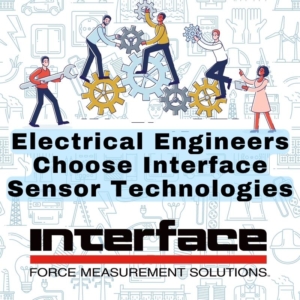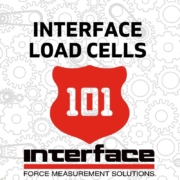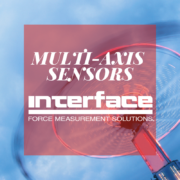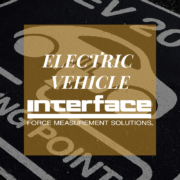Electrical Engineers Choose Interface Sensor Technologies
 Interface is a premier provider of force, torque and weighing solutions to electrical engineers around the world who are responsible for creating new products, solving problems, and improving systems.
Interface is a premier provider of force, torque and weighing solutions to electrical engineers around the world who are responsible for creating new products, solving problems, and improving systems.
Electrical engineers vary in specialization and industry experience with responsibilities for designing and testing electrical systems and components such as power generators, electric motors, lighting systems, and production robots. They use their expertise and knowledge of electrical systems and components to design, develop, assess, and maintain safe and reliable electrical systems. There are many electrical engineers who work on complex systems and who are responsible for troubleshooting and diagnosing problems that may arise.
The electrical engineers whose primary focus is research and development look to create new electrical technologies and advance existing systems. Projects related to renewable energy, smart grids, wireless communication systems, and electric vehicles utilize all types of measurement solutions throughout all phases of their R&D. Accuracy of testing is essential for electrical engineers, to ensure components comply with safety regulations and industry standards.
How does an electrical engineer use sensor technology for testing?
Sensors are a critical tool for electrical engineers in testing and optimizing the performance of electronic devices, systems, and processes. The type of sensor used, and the specific testing application will depend on the needs of the project or product, including the following examples.
- Structural testing: Sensors are used to measure the structural integrity of materials and components. Load cells convert force or weight into an electrical signal that can be measured and analyzed. For example, Interface’s standard load cells are frequently used to measure the amount of strain or deformation in a material under load, which can help electrical engineers design stronger and more reliable structures. See how Interface’s products were used in an EV battery structural testing project.
- Process control: Sensor technologies, including load cells and torque transducers are frequently utilized in manufacturing processes to monitor and control various parameters. Electrical use this data gathered through various instrumentation devices to ensure that the manufacturing process is operating within the desired parameters and to optimize the process for efficiency and quality.
- Environmental testing: Environmental sensors are commonplace for measuring temperature, humidity, pressure, and other environmental factors. Electrical engineers can use this data to test and optimize the performance of electronic devices and systems under various environmental conditions. Read Hazardous Environment Solutions from Interface to learn more.
Electrical engineers use load cells in a variety of applications, such as measuring the weight of objects, monitoring the force applied to a structure, or controlling the tension in a cable or wire. The choice of load cell will depend on the specific application and the requirements for accuracy, sensitivity, and capacity. Electrical engineers must also consider factors such as environmental conditions, installation requirements, and cost when selecting a load cell.
Electrical engineers work in a wide range of industries and sectors, as their expertise is required in many different areas of technology and engineering. Interface has supplied quality testing devices and components to EEs in every sector, from electronics to construction.
Electrical engineers in the electronics industry use Interface products in designing and developing components such as microchips, sensors, and circuits. Demands for intrinsically safe load cells and instrumentation come from electrical engineers that are responsible for designing, maintaining, and improving power generation and distribution systems, including renewable energy systems such as solar, wind, and hydropower.
More than any time in Interface’s 55-year history, electrical engineers who work on a variety of aerospace and defense projects, are using Interface sensor products for designing and testing avionics systems, communication systems, and navigation systems.
We also continue provide electrical engineers who engage in designing and developing the electrical and electronic systems in vehicles, including everything from powertrains and engine management systems to infotainment systems and driver assistance technologies with new and innovative force measurement solutions.
Manufacturing electrical engineers who engage in designing and optimizing manufacturing processes, as well as designing and evaluating the electronic components and systems used in manufacturing equipment are frequently using Interface sensors. This includes the rising demands for sensors in robotics.
Electrical engineers across many different industries depend on Interface, just as all the companies and organizations around the world depend on their expertise. Interface is a proud partner of engineers across all disciplines.
ADDITIONAL RESOURCES
Interface Celebrates Engineers
Interface Solutions for Production Line Engineers
Quality Engineers Require Accurate Force Measurement Solutions
Interface Solutions for Material Testing Engineers








